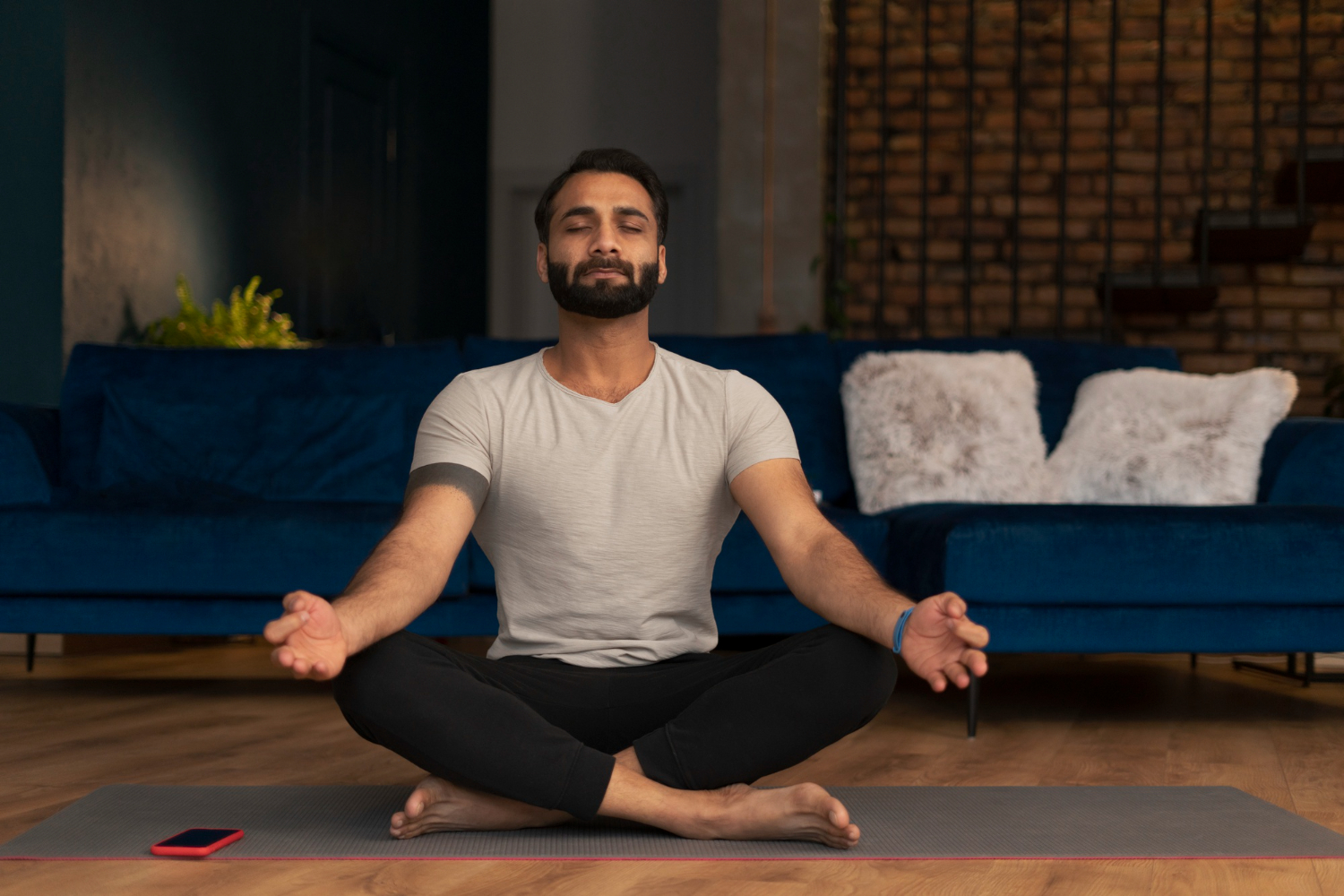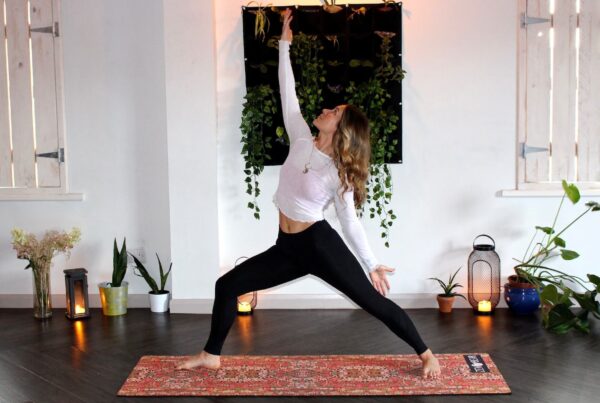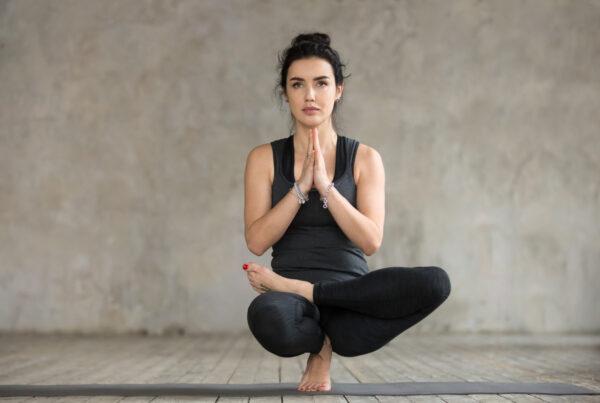Yoga is a long-standing tradition that dates back more than 2.5 million years ago. It incorporates breathing techniques, physical postures, and meditation to promote general health and well-being. The practice of yoga has gained popularity in recent years as more people have become aware of its numerous advantages.
Can practicing yoga help alleviate symptoms of anxiety and depression?
Daily yoga practice can help you overcome negative ideas, and yoga not only soothes the body and mind but also aids in the resolution of other health problems as well as poor mental health. We shall discuss the value of yoga for mental health in this article.
Here are some benefits of yoga for mental health:
- Enhances Mental Clarity and Concentration – Yoga’s meditation and breathing exercises can enhance mental clarity and focus. It may aid in lowering mental digressions and enhancing general focus.
- Increases Sleep – Studies have shown that regular yoga practice increases the quantity and quality of sleep. It may lessen insomnia and enhance regular sleep patterns.
- Your sympathetic nervous system is switched over to your parasympathetic nervous system, or from flight-or-flight to rest-and-digest mode. Normally, you have less anxiety and relax more. Beginning to breathe deeply causes your body to slow down out of the fight-or-flight response and calms your nervous system.
- Reduces Anxiety and Stress – Yoga is a fantastic approach to relieving anxiety and tension. The body’s stress can be reduced and the mind can be calmed through deep breathing and relaxation exercises.
- Yoga has been demonstrated to enhance mood and lessen the signs of depression. Enhancing feelings of happiness and well-being may be possible.
- Self-Awareness Rises – Yoga can aid in mindfulness and self-awareness growth. You can improve your body and mind awareness with its assistance.
What are some yoga poses and sequences that can help reduce stress and promote relaxation?
Anxiety and depression are two mental health issues that can be effectively treated with yoga. But it can be challenging to choose which style of yoga is best for your mental health given the wide variety available.
The most well-liked yoga styles are listed below, along with information on how they can enhance mental health:
- Hatha Yoga: Hatha yoga is a calm, gentle kind of yoga that emphasizes holding basic postures and breathing. This style of yoga is frequently suggested for beginners or those seeking relaxation and stress relief.
- Shashankasana: Also known as the child’s position, stimulates the neurological system, reviving the entire body. Essentially, this asana is a resting position that resembles a child curled up in the fetal position. It is done by kneeling down and leaning forward till the forehead hits the ground and the chest reaches the thighs and arms extended forward. This pose helps to calm the mind and reduce anxiety or stress.
- Yoga Vinyasa: A more vigorous style of yoga called vinyasa includes gliding from one pose to the next. This style of yoga is excellent for both your body and mind and can help you feel more energized and happier.
- Hasta Utthanasana: It is a yoga pose that is claimed to be beneficial for those with osteoporosis, high blood pressure, asthma, sinusitis, and other conditions. Due to its tremendous benefits as a relaxation method, it also aids in the treatment of mild depression and insomnia. Be sure to stand straight to strike this position. As you take a calm, deep breath, raise your hands to the front of your head. From your upper back, sway backward while continuing to breathe normally.
- Shavasana: This pose, usually done at the conclusion of a yoga session, promotes mental wellness while also calming the body. Maintain a straight posture while you lay flat on your back with your hands by your sides and your palms facing up. Maintain the position for at least five minutes while keeping your eyes closed. Even ladies who are pregnant can perform this asana because it will help them avoid prenatal depression, a common mental illness in pregnant people.
Which yoga is best for Mind power?
Yoga’s key additives that calm thoughts and enhance cognitive characteristics are meditation and breath control. Yoga poses are clearly numerous poses that modify blood go with the drift to numerous frame regions and sell higher functioning.
For the greatest outcomes, regular practice of several numbers of asanas is advised as part of yoga for mental focus. Some poses that aid in memory and focus are listed below.
- Padmasana (Lotus Pose)
In addition to calming and relaxing the brain, it is a meditation pose that has many other advantages. The optimum time to practice Padmasana is in the morning. You don’t have to practice Padmasana on an empty stomach; you can eat a meal a few hours beforehand.
In addition to calming and relaxing the mind, padmasana also stimulates and energizes the pelvis, spine, bladder, and abdomen. Opening up the hips also increases their flexibility.
- Ardha Matsyendrasana
It is also known as the Seated Twist Pose. Early in the morning, on an empty stomach, is when this asana is most effective. This pose can also be performed 4 to 5 hours after eating. Maintain this brain-boosting yoga position for 30 to 60 seconds. The digestive, reproductive, and urinary systems are all strengthened by this asana. Additionally, it stretches the neck, shoulders, and hips. The right side of this asana must be done first, followed by the left.
- Paschimottanasana
It is also known as Seated Forward Bend. This type of memory yoga helps you reduce stress and avoid unpleasant feelings like rage and impatience. Paschimottasana is regarded as a super-brain yoga pose that improves cognitive function. The brain is fed and given energy by it. The forward bend stretches the entire back of the body, from the calves to the hamstrings to the spine, and is thought to relieve tension and improve mood.
- Ashtanga yoga
This is a physically challenging kind of yoga that calls for a series of difficult poses to be carried out in a particular order. Ashtanga yoga can enhance power, flexibility, and concentration.
Conclusion
Yoga for mental health is a beneficial practice for general health to energize and nourish the brain. When used in conjunction with other therapies, such as psychotherapy and medication, it can be especially helpful in delivering a comprehensive approach to mental health care.










